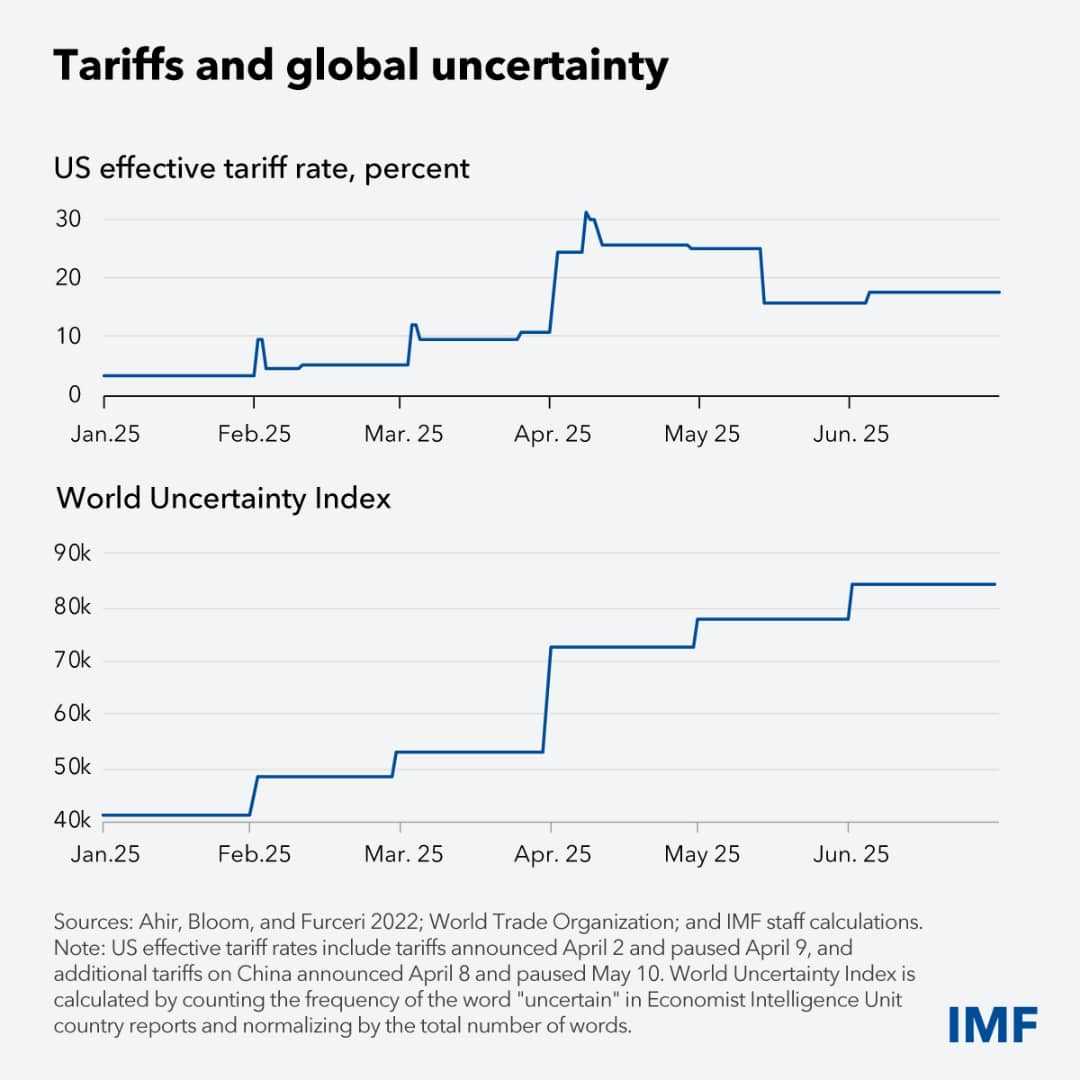
Oscar J Jeke- Zim Now Reporter
The International Monetary Fund has projected that global economic growth will remain subdued, estimating a growth rate of 3.0% in 2025 and 3.1% in 2026, according to its latest World Economic Outlook update.
The projections, released on Tuesday, reflect persistent global economic challenges, including elevated interest rates, geopolitical tensions, and slowing trade dynamics.
The IMF cautioned that while inflation is gradually easing and monetary policy is tightening across major economies, growth remains below historical averages.
“Global growth is projected at 3.0% in 2025 and 3.1% in 2026, well below the historical average of 3.8% from 2000 to 2019,” the IMF said in the WEO update, citing factors such as restrictive financial conditions and sluggish productivity growth.
Advanced economies are expected to grow at a rate of 1.6% in 2025, while emerging market and developing economies are forecast to expand by 4.1%. The IMF noted that these modest improvements come amid a gradual normalization of inflation trends and stabilizing global financial markets.
Related Stories
In sub-Saharan Africa, growth is projected to accelerate to 4.0% in 2025, driven by improved commodity prices and an investment recovery in major economies such as Nigeria, Ethiopia, and Kenya. However, risks remain high, particularly for heavily indebted countries facing tightening global financial conditions.
The IMF also pointed to diverging fiscal positions and public debt concerns across countries. “Governments must balance the need for growth-supportive policies with maintaining fiscal sustainability,” the report noted.
On inflation, the IMF stated that global headline inflation is expected to decline to 4.5% in 2025, down from 5.8% in 2024, largely due to falling energy and food prices. Core inflation, however, remains sticky in several economies, suggesting a cautious approach to interest rate reductions.
The Fund called for continued structural reforms and productivity-enhancing investments, particularly in digital transformation and climate resilience, to support long-term recovery. “Boosting productivity and ensuring inclusive growth should remain top priorities,” it urged.
Amid rising geopolitical fragmentation, the IMF also warned against growing trade restrictions and called for renewed multilateral cooperation to safeguard global economic stability. “Protectionist tendencies could further undermine growth prospects and delay global economic convergence,” the outlook added.
The WEO update comes as the global economy continues to grapple with the lingering aftershocks of the COVID-19 pandemic, rising protectionism, and the economic fallout from conflicts in Europe and the Middle East.




















Leave Comments